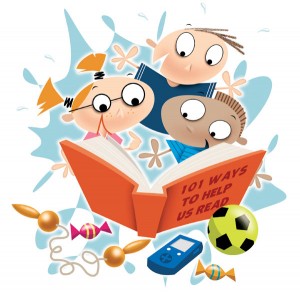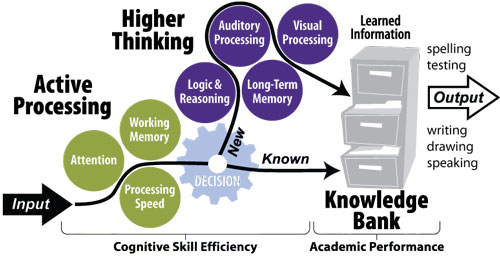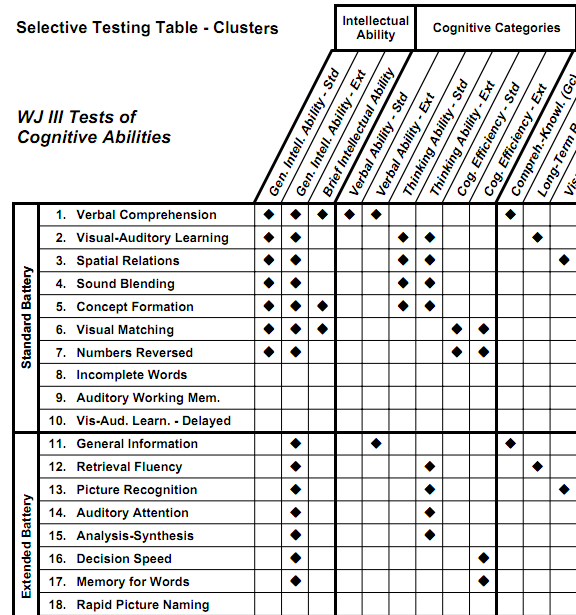How to Get Two More Years of Brain Health
 Here on the Next Brain Blog I have posted several times on the value of taking a walk for stimulating thinking, lowering stress and forestalling the effects of age-related cognitive decline. Even small amounts of walking can produce dramatic results. For example, check out the new research from University of Illinois at Urbana-Champaign that found:
Here on the Next Brain Blog I have posted several times on the value of taking a walk for stimulating thinking, lowering stress and forestalling the effects of age-related cognitive decline. Even small amounts of walking can produce dramatic results. For example, check out the new research from University of Illinois at Urbana-Champaign that found:
Walking 40 minutes three times a week on a regular basis increases the size of your hippocampus (area of brain where memories form) and effectively slows normal cognitive decline by two years in adults ages 50 to 80 years.
This is a powerful finding because normally our hippocampus decreases in volume 1-2% per year as we age.
Categories: Cognitive Decline, Lifestyle, Memory and Learning, Older Adult Tags: exercise
Brain Training Lowers Car Crashes by 50%
 Systematic brain training using software to improve your cognitive performance is a relatively new technique. The software acts like a brain gym working your memory, visual cognition, speed of processing, numeracy, decision-making skills and the like to make them bigger and stronger. More than 10 vendors will sell you a package and program ranging in price from $20 to hundreds. We have covered most of them here on the Next Brain Blog.
Systematic brain training using software to improve your cognitive performance is a relatively new technique. The software acts like a brain gym working your memory, visual cognition, speed of processing, numeracy, decision-making skills and the like to make them bigger and stronger. More than 10 vendors will sell you a package and program ranging in price from $20 to hundreds. We have covered most of them here on the Next Brain Blog.
But does it work? And does it work better than solving crossword puzzles, playing video games or other mentally stimulating things we do for fun? There is compelling evidence that brain training software has impact it is just not clear how much.
So I am always on the lookout for new studies that look at the effectiveness of brain training software. For example, Posit Science recently publish a synopsis of two studies done in 2010. Note Posit Science sells brain training software but the studies were conducted by academic researchers in neuroscience and psychology. These are interesting because both studies show improvement in cognitive performance on tasks outside the training software. One even demonstrated a 50% reduction in at-fault car crashes over a six year period:
“This study looked at crash records for 908 older drivers who trained on a version of Posit Science’s Road Tour exercise six years earlier. Road Tour expands “useful field of view,” how much a person can take in with a single glance. Useful field of view is critical to safe driving: a wider field can help drivers spot dangers in their peripheral vision in time to react. The study authors found that training with the Road Tour technology (called “speed-of-processing training” in the study) cut a driver’s crash risk. In fact, they were responsible for about 50% fewer crashes than their untrained peers. Road Tour is available as part of both the InSight and DriveSharp brain fitness programs.”
This is an important result. It shows that brain training software can improve the cognitive performance of older adults enough to impact an important daily activity.
Interested to hear from readers that use brain training software. How does it improve your cognitive performance in daily life?
Categories: Decision Making, Older Adult, Perception, Software, Training Tags: brain training
LearningRx – A Brain Training Center Near You
A reader shared an experience they had with LearningRx a consumer center for brain training. They promise to improve your academic performance by providing coached training on a full range of cognitive skills (see diagram).
The process starts with a formal assessment using the Woodcock-Johnson assessment for cognitive abilities (partially shown below).
You are then matched with a coach and work 3-5 days per week for an hour a day for 3 months. They claim a 3.6 year improvement on the cognitive assessment and have some studies to back it up.
LearningRx has centers across the US and they want to open more using a franchise approach. Interested to hear from other readers that have used this service.
Categories: Child, Cognitive Development, College Student, Memory and Learning, Mental Focus, Perception, Training Tags: brain training
Does Emotional Intelligence Peak in Your 60s?
 Emotional intelligence is our ability to spot, manage and generate emotions in ourselves and others. It appears to correlate better to life success than IQ. Emotional intelligence is not taught in school, it is learned (by some) through life experience. So it should be no surprise that it should improve as we age.
Emotional intelligence is our ability to spot, manage and generate emotions in ourselves and others. It appears to correlate better to life success than IQ. Emotional intelligence is not taught in school, it is learned (by some) through life experience. So it should be no surprise that it should improve as we age.
According to recent research from the University of California at Berkley, some aspects of emotional intelligence appear to peak in our 60s. These include:
- Effective use of positive reappraisal (seeing the bright side of things) to reinterpret negative situations in a positive way.
- Sensitivity to sadness or the ability to empathize with those feeling sad.
These are important findings as they help to further dispel the myth of universal cognitive decline with age. Understanding which aspects of cognitive performance naturally improve as we age should shape our approach to brain fitness.
Interested to hear from readers that have noticed improvements in Emotional Intelligence in older adults.
Categories: IQ and EQ, Lifestyle, Manage Emotions, Older Adult Tags: emotion, EQ
Jump Two Reading Grade Levels in 8 Weeks
 I receive emails from parents asking about brain training for their children. Improving kid’s brain function and cognitive performance, especially in school is a very active area. It is covered regularly on the Next Brain Blog. You can check out what has already been posted by going to the categories pull down menu (to the right) and selecting Child or Student under the Life Stage or Vocation category.
I receive emails from parents asking about brain training for their children. Improving kid’s brain function and cognitive performance, especially in school is a very active area. It is covered regularly on the Next Brain Blog. You can check out what has already been posted by going to the categories pull down menu (to the right) and selecting Child or Student under the Life Stage or Vocation category.
One of the most exciting and scientifically robust options parents have for boosting the brain power of their children are the products provided by Scientific Learning (I have no affiliation). They apply brain fitness techniques to improve reading and language comprehension skills in K-12. They have good evidence to claim that they can:
Improve the reading level of students by two grades even if the student is already performing at an advanced level.
Parents can rent the program here for about $200.
Interested to hear from readers that have experience with brain fitness products from Scientific Learning.
Categories: Child, Memory and Learning, Software Tags: speed reading
Beet Juice as Brain Food For Older Adults
 A study from Wake Forest University demonstrates for the first time that drinking beet juice (about 16 ounces a day for a week) increases blood flow to the brain in older adults. More specifically:
A study from Wake Forest University demonstrates for the first time that drinking beet juice (about 16 ounces a day for a week) increases blood flow to the brain in older adults. More specifically:
“The MRIs showed that after eating a high-nitrate diet, the older adults had increased blood flow to the white matter of the frontal lobes – the areas of the brain commonly associated with degeneration that leads to dementia and other cognitive conditions.”
Brains scans such as MRIs provide strong evidence. Beets are one food source high in nitrates others include celery, spinach and cabbage.
Interested to hear from readers that use beet juice or other high-nitrate food stuffs as part of their next brain diet.
Categories: Cognitive Decline, Diet, Memory and Learning, Older Adult Tags:
Mom’s Brain Bulks Up After Giving Birth
 Exciting new research suggests that a mother’s brain undergoes significant growth (actually gets larger) in several areas just after birth. Additional brain volume in turn leads to improved cognitive performance. Specifically, hormonal changes seem to trigger improvements in maternal motivation, emotional processing, sensory integration and reasoning and judgment.
Exciting new research suggests that a mother’s brain undergoes significant growth (actually gets larger) in several areas just after birth. Additional brain volume in turn leads to improved cognitive performance. Specifically, hormonal changes seem to trigger improvements in maternal motivation, emotional processing, sensory integration and reasoning and judgment.
The research is reported in the journal Behavioral Neuroscience and summarized nicely in Science Daily.
“In particular, the mothers who most enthusiastically rated their babies as special, beautiful, ideal, perfect and so on were significantly more likely to develop bigger mid-brains than the less awestruck mothers in key areas linked to maternal motivation, rewards and the regulation of emotions.”
Although motherhood is not a strategy for improving brain function and cognitive performance it does seem to have that effect. Especially for those that truly cherish what they have. This is a fry cry from some commonly held beliefs that motherhood can “turn your brain into mush”. It may seem that way with the all additional responsibilities, learning that must be done and the new things to remember but that is how growth normally feels.
Just as the aging mind ripens in many ways with time, taking on the responsibilities of motherhood appears to push the brain to a whole new level of performance.
Categories: Cognitive Development, Lifestyle, Manage Emotions, Parent Tags:
Walking 6 Miles a Week Reduces Chances of Memory Loss By Half
 We all know exercise is a good for the brain. But what types should I do, how much and what benefits can I expect? We try and answer these questions in the Next Brain Blog by looking at the latest scientific studies.
We all know exercise is a good for the brain. But what types should I do, how much and what benefits can I expect? We try and answer these questions in the Next Brain Blog by looking at the latest scientific studies.
Take for example the study published by Kirk I. Erickson in the October 13th issue of Neurology Online and reported by Web MD as Walking May Ward Off Memory Loss. The study found walking 72 blocks per week or approximately 6-9 miles early in life can actually increase the volume of grey matter in the brain and avoid shrinkage-related memory problems. Furthermore,
“Researchers say those who walked the most cut their risk of developing memory loss in half.”
This effective was found in dementia free older adults and measured over a period of nine years.
Categories: Cognitive Decline, Lifestyle, Older Adult Tags: exercise
2nd Language Boosts Cognitive Control & Reserve
 According to research recently reported in the Wall Street Journal, Building a More Resilient Brain, you can improve thinking and brain health by learning a new language. There is some evidence that learning a second language can improve your cognitive control (stop paying attention to one thing and focus on another) and may stave off the effects of dementia for several years by building up cognitive reserve. Unfortunately, it is not know when in life it is best to learn the language and if you need to use it daily to get these benefits.
According to research recently reported in the Wall Street Journal, Building a More Resilient Brain, you can improve thinking and brain health by learning a new language. There is some evidence that learning a second language can improve your cognitive control (stop paying attention to one thing and focus on another) and may stave off the effects of dementia for several years by building up cognitive reserve. Unfortunately, it is not know when in life it is best to learn the language and if you need to use it daily to get these benefits.
Learning a second language is a major undertaking but does promise to improve brain function and cognitive performance. Very interested to hear from readers that have learned a second language and believe it has had brain boosting effects.
Categories: Child, Cognitive Decline, Memory and Learning, Mental Focus, Older Adult, Training Tags:
Make Scene Analysis Decisions up to 25% Faster
 On the Next Brain blog we explore specific techniques for improving brain function and cognitive performance. The best techniques are easy or pleasurable, have a significant impact and are backed by scientific evidence. Take for example, the new study on how video games impact the brain’s ability to process probabilistic information conducted at the University of Rochester.
On the Next Brain blog we explore specific techniques for improving brain function and cognitive performance. The best techniques are easy or pleasurable, have a significant impact and are backed by scientific evidence. Take for example, the new study on how video games impact the brain’s ability to process probabilistic information conducted at the University of Rochester.
Researchers found that playing action video games for as little as 50 hours increased decision speed up to 25% with no loss in accuracy.
The tasks involved analyzing a scene (sometimes shown visually other times just described verbally) and deciding what is going on. Subjects were 18-25 years old and do not normally play video games.
Why does this work? According to the researchers:
“Decisions are never black and white,” she said. “The brain is always computing probabilities. As you drive, for instance, you may see a movement on your right, estimate whether you are on a collision course, and based on that probability make a binary decision: brake or don’t brake.”
Action video game players’ brains are more efficient collectors of visual and auditory information, and therefore arrive at the necessary threshold of information they need to make a decision much faster than non gamers, the researchers found.
This suggest using action video games to train your brain should create lasting and transferable effects.
Categories: College Student, Decision Making Tags: games


